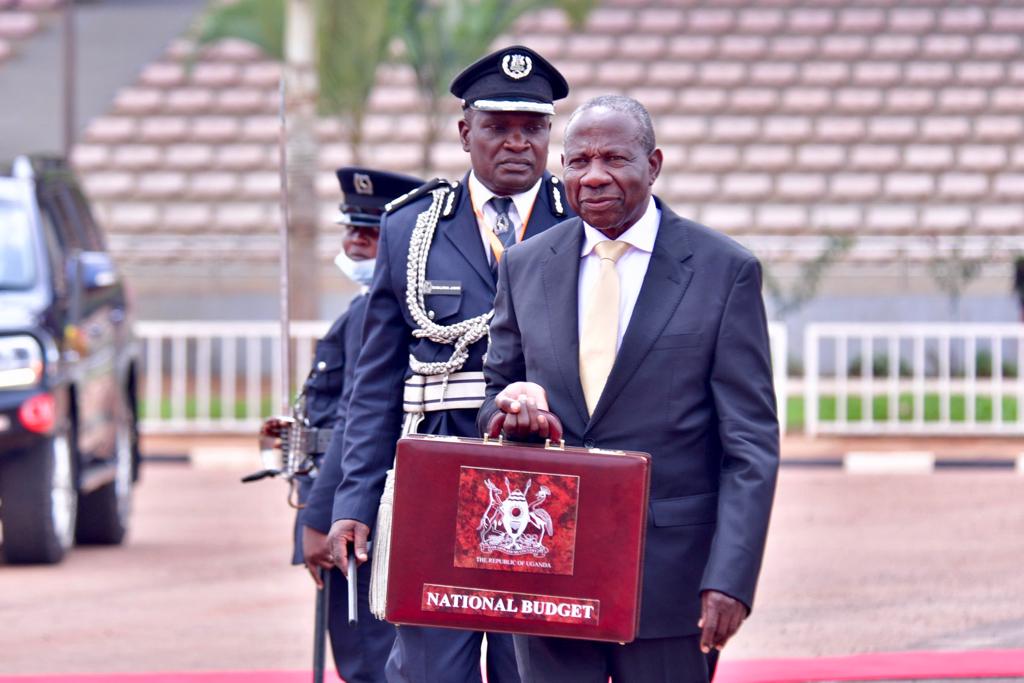Prime
Vulnerabilities in URA’s way to rise tax revenue

Mr Ramathan Ggoobi says there is a lot of collectable tax revenue that URA should be bringing into government coffers. Photo / File
What you need to know:
- Whereas URA is seeking to rise the ratio of tax to gross domestic product, there are a lot of vulnerabilities that must be addressed to realise targeted revenue
Low tax revenues, rising public debt and tax avoidance come to the fore every Budget cycle. And the 2023/24 cycle is not any different.
Over the years, these vulnerabilities have deepened, only that this time, it is more visible and a little more difficult to fix.
Out of 10 main possible vulnerabilities and uncertainties that the 2023/2024 will have to deal with, according to Mr Ramathan Ggoobi, the Finance Ministry permanent secretary and secretary to Treasury, are low tax revenues and the ballooning debt.
Currently, Uganda Revenue Authority (URA) is collecting under 13 percent of tax to gross domestic revenue.
Yet public debt continues to accumulate to levels that are beginning to cause discomfort at the highest level of government including President Museveni, Ministry of Finance and Bank of Uganda officials.
In a span of a decade, public debt has risen from 15 percent of gross domestic product in 2009/10 to now 48 per cent, just within the 50 percent mark threshold.
Even at 48 percent mark, a large share of the revenue is going towards debt servicing, which has starved financing of priority sectors of the economy.
The proportion of revenues spent on debt payment has increased from 22 percent in the 2018/19 financial year to 34 percent, which strains Bank of Uganda’s foreign exchange reserves.
Illicit financial flows
This has not been helped by the continued perpetuation of illicit financial flows, especially by multinational in mining, oil and gas, retail, construction, telecommunications, transport, and hospitality.
Illicit financial flows are broadly described as illegal movements of money from one country to another.
If left unchecked it has a huge potential to deprive a country such as Uganda of tax revenues. The UN Conference on Trade and Development, estimates that Africa loses $88.6b (nearly Shs330 trillion) annually to Illicit financial flows with Uganda alone estimated to be losing between Shs2 trillion and Shs6 trillion annually.
Mr Ggoobi has previously said a huge amount of revenue is not reaching the national treasury, which he estimates to be between Shs3 trillion and Shs5 trillion.
A case study by URA, titled: Strengthening tax transparency to combat tax evasion, illicit financial flows and profit shifting in Uganda, underscores the challenge at hand.
The study, for instance, reveals that from 2017 to 2019, just from one case alone of illicit financial flows, nearly Shs95b was recovered after a South African transfer pricing expert was deployed under a first Tax Inspectors Without Borders programme in Uganda to help firm URA’s capacity.
“After processing nine audit cases and guiding URA tax officials through all audit stages from risk assessment and case selection to tax assessment and collection, one of the cases resulted in the collection of approximately $26m,” the URA study said.
Problematic area
With the ongoing oil and gas activities, which government is looking at to boost recovery and transformation of the economy, there is need to close revenue loopholes. Oil companies are making a $6.75b (Shs25 trillion) investment in four years to 2025 and in the next 25 years government is projecting to earn between $25b and $50b.
This is in addition to job opportunities, expanded tax base, and multiplier effect for the local businesses.However, for the Domestic Revenue Mobilisation Strategy, whose objective is to improve revenue collection to between 16 and 18 percent of gross domestic product over the next five years, government must work a little harder.
Mr Onesmus Mugyenyi, the Acode deputy executive director, says closing revenue leakages in mining will be a huge leap towards enhancing domestic revenues.
This, he says, should begin with solving data discrepancies in export, which he believes, encourages corruption in revenue assessment and collection.
“Increased coordination of institutions including local governments so that there is collection of right data as well as implementation of mining laws and beneficial ownership disclosure legislation would go a long way in not only boosting, but also enhancing revenue collection,” he says.
However, beyond this policy and budget expert Julius Mukunda and economist Fred Muhumuza, believe that government should rely more on concessional loans for budget support as well as reduce domestic borrowing, to create enough credit for private sector growth.
Government has already indicated willingness to reduce domestic borrowing to under 1 percent of gross domestic product.




